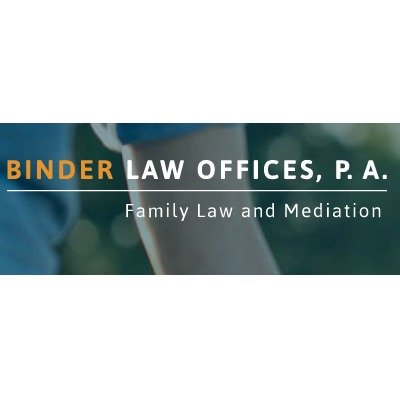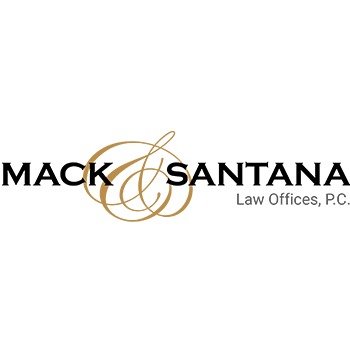Best Collaborative Law Lawyers in Minneapolis
Share your needs with us, get contacted by law firms.
Free. Takes 2 min.
Free Guide to Hiring a Family Lawyer
List of the best lawyers in Minneapolis, United States
About Collaborative Law in Minneapolis, United States
Collaborative Law is a legal process used to resolve disputes, mainly in family law cases, by fostering open communication and cooperative problem-solving. In Minneapolis, United States, Collaborative Law provides an alternative to traditional litigation, allowing individuals to find amicable solutions to their legal issues.
Why You May Need a Lawyer
While Collaborative Law promotes an atmosphere of cooperation, legal representation is still crucial to ensure your rights and interests are protected throughout the process. You may need a lawyer in Collaborative Law to:
- Provide legal advice and guidance throughout the negotiation.
- Help you understand your rights and responsibilities under local laws.
- Draft or review legal documents and agreements.
- Protect your interests and advocate for you during negotiations.
Local Laws Overview
In Minneapolis, United States, Collaborative Law follows specific laws and regulations. Some key aspects include:
- Both parties must voluntarily agree to engage in the Collaborative Law process.
- All parties involved must have separate legal representation.
- The process promotes transparency and requires full disclosure of relevant information.
- If the Collaborative Law process fails, attorneys who represented the parties in the Collaborative Law process are disqualified from representing them in subsequent litigation.
Frequently Asked Questions
Q: What types of cases can be resolved through Collaborative Law in Minneapolis?
A: Collaborative Law is commonly used to resolve family law matters such as divorce, child custody, and property division. It may also be used for other civil disputes that can benefit from a cooperative approach.
Q: Is Collaborative Law binding and enforceable?
A: Yes, once an agreement is reached through the Collaborative Law process and signed by all parties, it becomes binding and enforceable under Minneapolis law.
Q: How long does Collaborative Law typically take in Minneapolis?
A: The timeline for Collaborative Law varies depending on the complexity of the case and the ability of the parties to reach agreements. On average, the process can take several months to a year, but it can be quicker or longer depending on the specific circumstances.
Q: Can I still go to court if the Collaborative Law process fails?
A: Yes, if the Collaborative Law process fails to produce an agreement, you still have the option to pursue litigation and have your case resolved in court. However, the attorneys who represented you during the Collaborative Law process may be disqualified from representing you in litigation.
Q: How much does Collaborative Law cost in Minneapolis?
A: The cost of Collaborative Law can vary depending on the complexity of the case and the number of meetings required. It generally involves attorney fees, mediator fees (if applicable), and any other professional services required. It is important to discuss costs with your attorney beforehand.
Additional Resources
If you need further information or assistance regarding Collaborative Law in Minneapolis, you may find the following resources helpful:
- Minneapolis Collaborative Law Association - https://www.minncollab.org/
- Minnesota Judicial Branch - https://www.mncourts.gov/
- Minnesota State Bar Association - https://www.mnbar.org/
Next Steps
If you need legal assistance in Collaborative Law in Minneapolis, we recommend taking the following steps:
- Evaluate your situation and determine if Collaborative Law is the right approach for your case.
- Research and select an experienced Collaborative Law attorney in Minneapolis.
- Schedule an initial consultation with the attorney to discuss your case and explore your options.
- Work closely with your attorney, providing them with all necessary information and participating actively in the Collaborative Law process.
- Review any agreements carefully before signing and ensure you fully understand their implications.
- If an agreement is reached, follow the necessary steps to make it legally binding.
- If the Collaborative Law process fails, consult with your attorney about potential next steps, including litigation if necessary.
Lawzana helps you find the best lawyers and law firms in Minneapolis through a curated and pre-screened list of qualified legal professionals. Our platform offers rankings and detailed profiles of attorneys and law firms, allowing you to compare based on practice areas, including Collaborative Law, experience, and client feedback.
Each profile includes a description of the firm's areas of practice, client reviews, team members and partners, year of establishment, spoken languages, office locations, contact information, social media presence, and any published articles or resources. Most firms on our platform speak English and are experienced in both local and international legal matters.
Get a quote from top-rated law firms in Minneapolis, United States — quickly, securely, and without unnecessary hassle.
Disclaimer:
The information provided on this page is for general informational purposes only and does not constitute legal advice. While we strive to ensure the accuracy and relevance of the content, legal information may change over time, and interpretations of the law can vary. You should always consult with a qualified legal professional for advice specific to your situation.
We disclaim all liability for actions taken or not taken based on the content of this page. If you believe any information is incorrect or outdated, please contact us, and we will review and update it where appropriate.









